COVID-19 closed our campus, shut us in, forced us to adapt. It sickened millions, killed thousands, rendered all of us powerless. We asked members of the DePauw community to reflect on the virus and its ramifications, which have monumentally changed our lives and indelibly marked our history.
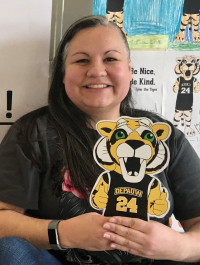 Magical thinking
Magical thinking
By Leila Hernandez ’03
The main lesson I remember from my anthropology classes with my brilliant professor, Lakshmi Fjord, is this: All human rites of passage have three phases: separation, liminality and incorporation. Liminality – where the magical transformation takes place – is the scariest yet most interesting phase.
I can’t help but see this global pandemic as a rite of passage and our experience in quarantine as a perfect example of liminality, where we must perform certain actions to safely navigate to the other side. We left our offices and schools, and all-but-essential businesses were forced to close. We look forward to that glorious day when we can all go outside and hug our family, friends and neighbors again.
We’re not there yet. We need to make peace with this magical and mysterious phase. We don’t know what’s ahead of us. We only know that we can never go back to how it used to be. So many things that gave us comfort and a sense of control are no longer there, and we don’t know if they are coming back.
But liminality is where growth and change happen, where roles are reversed, and the powerless become the powerful. Liminality is the great equalizer.
By the time this global pandemic has run its course, and we are re-incorporated into a fully functioning society, I hope and pray that we are a better society, one that cares for our poorest and views health care as a human right. I hope we will continue to slow down. I hope that a new world will be born.
I’m ready for the magic.
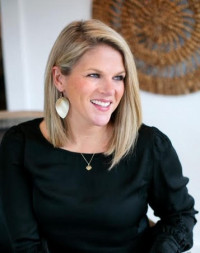 A simple request
A simple request
By Meghann “Meggie” Dials ’03
My ask is simple: As we approach whatever phase we are about to enter, go in with an open mind and heart. We are six+ weeks into this and we have learned about the criticality of compassion and empathy. So don’t stifle your voices, your passions, nor your fears, but speak in ways that are not against your neighbor.
This entire world is fighting the same enemy and it manifests differently for so many of us. We are fighting in solitude and in quarantine and yet, even despite differences, we could be a unified front if we seek to understand.
And so above all else: Human. Kind. Be both.
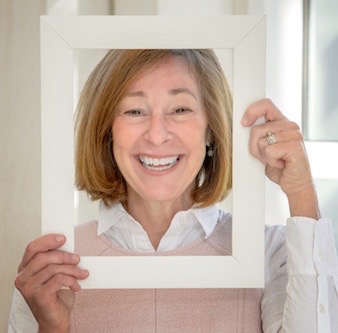 Resilience
Resilience
By Gigi Jennewein, assistant professor of communication and theatre
Artists are continuing to be resourceful, generous and community-driven people. While most individual artists (and arts institutions) are expressing obvious concern about their livelihoods, they are hanging in by staying actively connected and by opening up access. Theatres are sharing filmed versions of plays. Playwrights are unrestricting access to their work, and writing more and sharing it. I discovered a site featuring “Viral Monologues” written by successful playwrights and performed by famous actors from their kitchens and backyards and beds, among other locales. I was thrilled to discover this because I will use it for class, but also because it was artists doing what artists do best: responding to the times with insight, humor, pathos and inclusion.
I think that when the gates reopen we’ll see an explosion of art as people will be so eager to be together. I think – hope – that theatres will flourish, music will explode and public art will reemerge. Because the arts have always been a celebration of our shared humanity and we all will certainly be wanting to share our humanity when we are released from this nightmare.
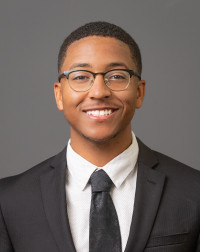 A different rite of passage
A different rite of passage
By Byron Mason II ’20
My last semester at DePauw felt like a movie that ended half an hour early. And you had to see the rest of it when it came out on DVD. You definitely feel disconnected. There’s no way that online classes, phone calls and text messages can replicate those connections you have with your peers and your professors. It’s tough, but very necessary.
That feeling of being disconnected doesn’t make me feel any less accomplished as I finish out my finals, but being at home when I should be preparing for graduation takes away a bit of the gravity of the whole situation. I don’t feel that combination of relief and pressure as I move on to the next chapter. Some might say that’s a good thing, but that mix of pressure and relief you feel when graduating is like a rite of passage. That’s when you can really say you did it. A lot of seniors won’t be able to experience that until a later date. It still won’t be the same, but it’s something, and that’s what matters.
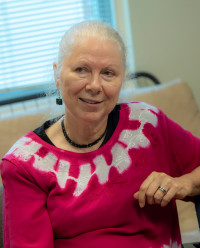 Discovery
Discovery
By Gloria Townsend, professor of computer science
In normal times, extroverts rule the world. Now, at long last, we introverts have some power. When I “talk” with my students during COVIDTime, I discover fascinating facets of their personalities. One of my advisees recently described the new way she experiences a blooming magnolia that she watched every other spring but had never really seen until spring 2020. As faculty members, we’ve talked so much about learning new ways to communicate with our students during spring 2020. I want to ensure that I don’t lose spring 2020 communication when I return to the so-called normal world.
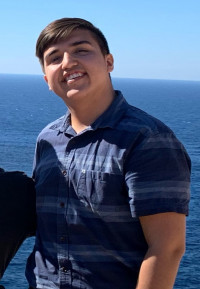 A changed life
A changed life
By Bo Shimmin ’19
On March 10, I received a devastating email from the Italian Fulbright Commission and Department of State stating that the Fulbright program for which I was teaching was being suspended and we must leave the country as soon as possible. I was in Rome with other Fulbright English teaching assistants and researchers and we all were enjoying the city and how quiet it had become without the usual tourists. My host city of Cagliari seemed one of the safer places to be, considering it was on the island of Sardinia, and I immediately packed up my suitcase to get back to my home. Schools had been shut down for a few weeks and I was eagerly waiting for Italy’s prime minister, Giuseppe Conte, to bear some good news about returning. That news would never come and I arrived back to a city that resembled something from a horror movie.
Public transit was empty. The streets were silent. Only pharmacies and groceries stores were open. I was scared. My beautiful and wonderful Sardinia wasn’t the same. I was greeted back to my flat with six feet of separation by my flatmates, who wanted to be sure I was healthy. They, too, were nervous of the virus. Sardinia is small and the life expectancy rate is very high, thanks to their high quality of life and great Mediterranean diets, so people were unwilling to take any chances when it came to the spread of COVID-19. I never got to say goodbye to anyone who had made my experience so special. I cried as I packed my bags, not knowing when I would be able to return or see them.
On March 12, the night before my flight home, a student saw me from his balcony and shouted down to me, “Bo, we miss you! When is school starting again?” I had no answer. I could only wave back and tell him how much I missed being able to speak with them and watch them grow in the classroom. I never thought I would grow to love teaching high school this much, but this experience completely changed my life. The students, teachers and friends I had made will always be with me.
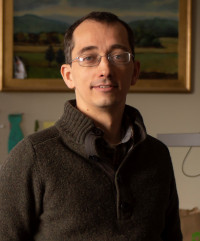 Foundations
Foundations
By Jacob Hale, associate professor of physics
I could reflect on students, family, teaching, science. I guess that my deepest reflection has been on a topic where all of those intersect: foundations. The pandemic has caused us to pause as a world, a nation, a community, a college, a classroom and a family. We all have been forced to pause and I hope we are inspecting our foundations. What truly is important for a happy life? What brings deep and reliable peace? I don't think the answer comes from our surroundings and circumstances but much more in our character and how we respond. It is much more in our relationships with loved ones rather than our resources.
For years I have enjoyed a Sunday walk with my sweetheart. We’ve continued that walk through the stay-at-home order (and made it more frequent) but have been thrilled to see so many families in our neighborhood playing in their yards, a sight we seldom saw before. I recognize that I am privileged with my current surroundings and resources: I have a safe place to go on a walk. Still, throughout my life with and without traditional resources, true peace and joy haven't come from publications, payment or prominence. It is much closer to home.
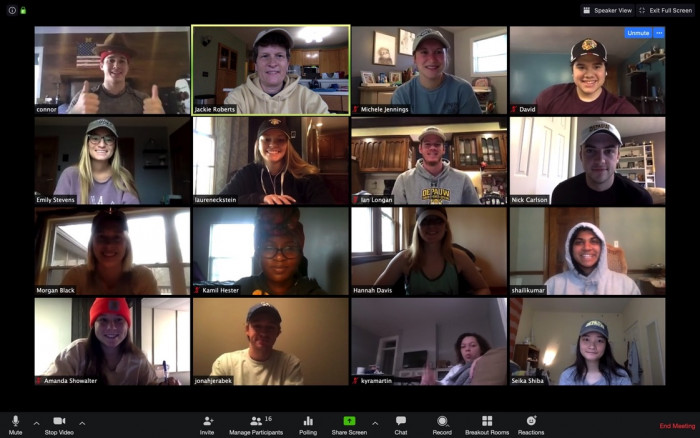
Whimsy
Jackie Roberts, the Howard C. and Mary Ellen Black professor of chemistry and biochemistry and department chair, made thrice-weekly wellness checks fun for her advanced biochemistry students. This was hat day, followed a week later by onesie day.
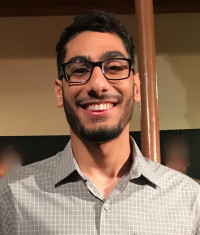 A difficult decision
A difficult decision
Mahmoud Abouelkheir ’21 was in Belgium, participating in a study-abroad research internship, when COVID-19 began affecting communities globally. “I had to make the difficult decision to stay abroad instead of returning to my home in New York City,” he said by email in late April. “I hope that by June things will have returned to some level of normalcy as I have been accepted to a summer internship program at Massachusetts General Hospital.”
A month later, he wrote that the program “was not cancelled! Instead it has moved onto an online format so that I could participate remotely with a Harvard Medical School faculty member in computational biology. …
“It's interesting to see how much has changed since I first wrote about the pandemic and now. Grocery stores are fully stocked like normal, and many areas of the country have loosened quarantine restrictions. I have even returned to my lab to continue doing my research internship in person! I think we all are all cautious about restarting society, but so far things have been working out well with no significant second wave of infections.”
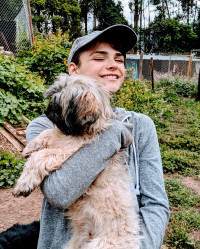 15 days
15 days
By Abi Smith ’21
While other students were being sent home from DePauw, I was among 1,600 Americans stuck in Peru. The Peru president announced travel restrictions March 15; we had until 11:59 p.m. the next day to leave. Planes filled up; the government halted travel; and two other DePauw students, Catherine Fisher ’21 and Perla Bermudez ’21, and I were stuck indefinitely.
I was working as a media intern for the nonprofit Globalteer, which let me stay in my housing during the lockdown. We ran out of hot water on the third day. On Day 10, I was turned away from a grocery store, although I had a face mask and gloves. I was allowed in the next day after my temperature was taken. At midnight on Day 15, I got a call informing me that I could fly out with Catherine and Perla’s study-abroad group, School for Field Studies.
Seven hours later, I was out the door, hauling a 50-pound suitcase and trying to avoid police who might order me back to my housing. I got a ride with SFS to the airport, where we waited five hours to enter.
We finally got a flight to Miami. I slept while waiting for a flight to Atlanta. When I got there, my flight home to Fort Wayne was canceled. I finally found another flight and made it home seven hours later.
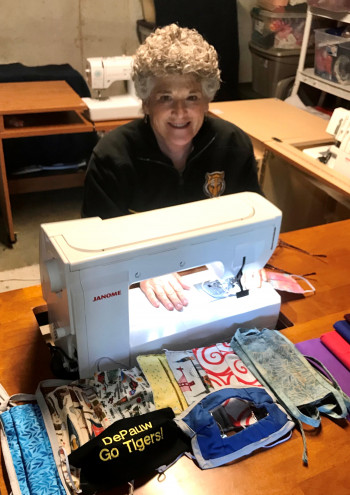 1,000 masks
1,000 masks
By Mary Morris Hamilton ’81
When she was furloughed from her jobs as a swim teacher and coach, the former DePauw swimmer and lifelong seamstress started sewing masks. And sewing them. And sewing them.
I started with making the masks for my niece, who is a physician who lives in Milwaukee, because her dermatology clinic was totally out. I love updating my friends about my sewing projects on Facebook, so I posted a photo of the masks for my niece, and all of a sudden got dozens of orders! Many of the orders came from all over the country, and I ended up donating masks to physicians and other health care professionals in Florida, Wisconsin and Virginia. I supplied masks to multiple companies who support the health care industry too. I’ve used more than 150 yards of fabric for the 1,000 masks I’ve made. My current project is for my DePauw roommate who is deaf and pointed out the need for see-through masks, as those who are deaf need to see the lips of others to understand them or to converse. I love to sew; it’s something I learned from my mother, and it’s amazing to use this skill to help others! A fun fact about my mother is that she made the first ever DePauw swimming banner.
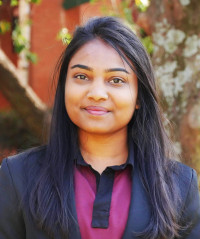 10,000 miles
10,000 miles
It was 4 a.m. in Mauritius, so Khushboo “Ashna” Coondiah ’23 hesitated to call home with the news that She had just received DePauw, responding to the COVID-19 pandemic, asked students to leave campus immediately.
While Coondiah waited anxiously to call her parents, “tons of questions were roaming in my head: What about my summer internships/research? What about exams? What about the assignments that were due in the next few days?” she said via email. She and her parents decided she should return home and figure out the rest later.
After seven months and 10,000 miles away, she was excited to return to the tropical island nation 1,200 miles off the coast of Africa, but saddened to think that “after this, I will never return to campus with my senior friends there.”
Upon her arrival home, Coondiah isolated herself. “Even though I am living with my parents and sisters, I made sure we do not have any physical contact and we tried to disinfect surfaces as much as we can,” she said. “Three days after I landed, Mauritius reported its first case of COVID-19.”
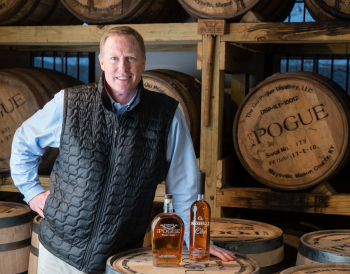 Déjà vu
Déjà vu
During World War II, a Maysville, Kentucky, distillery shut down its bourbon operation to produce fuel. The distillery – then owned by others – was previously and subsequently owned by the Pogue family, including Paul ’75, Peter ’83 and John ’07. (See the spring issue of DePauw Magazine.)
The COVID-19 pandemic prompted the Pogues to undertake a new “wartime” effort – converting their Old Pogue Distillery to make hand sanitizer.
“John, as usual, did the distilling part, and I did the logistics part,” Peter Pogue, a lawyer, said by email. “You essentially make high-proof alcohol, a bit higher than bourbon, and then put in some additives to comply with (federal) requirements. In speaking with the local Emergency Management folks, (we learned) the local hospitals, nursing homes, etc., were projected to be out of hand sanitizer in about two weeks. So we stopped making bourbon and switched to making hand sanitizer. We are donating our time, materials and labor. Other local companies are stepping up with donating grain – corn and barley – and plastic containers to get this accomplished. …
“Ironic that our distillery stopped making bourbon during WWII and made fuel alcohol for tanks, etc. After all, didn’t DePauw teach us to be philanthropic? Hopefully, we’ll look back and can say we made a positive contribution to stemming this virus.”
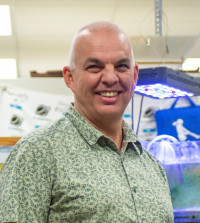 Ditto DePauw
Ditto DePauw
Some quick thinking also addressed the dwindling supply of hand sanitizer on the DePauw campus. Stevie Baker-Watson, associate vice president for campus wellness and the Theodore Katula director of athletics and recreational sports, asked Dave Roberts if he could remedy the problem.
Yes, said Roberts, whose multiple professional hats at DePauw include chemistry lab manager. He produced hand sanitizer for the campus, the Putnam County Jail and the Putnam County Hospital, which distributed it to local nursing homes and Emergency Management responders.
“This is a humanitarian issue, and so we are just trying to do our part in this craziness,” he said. “Lots of places are learning how to adapt and do the right thing with the skills they have to help their communities. America is a great place.”
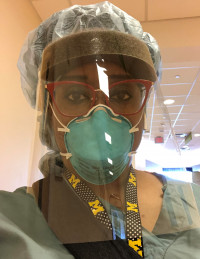 A different kind of care
A different kind of care
Though she is an ear, nose and throat surgeon, Shannon Fayson ’11 was less busy in the COVID-19 era than she previously was in her residency at Michigan Medicine. Any invasion into the nasal cavity was especially dangerous, so the hospital stopped elective surgeries, when she learns the most. She still performed some cancer surgeries, but spent most of her time consulting.
Fayson also spent time trying to assuage the anxiety of those around her – patients but especially her colleagues. “There’s a lot of fear and anxiety, uncertainty,” she said. “And our nurses are overloaded. They are worried about themselves and worried about taking this virus home to their parents, if they have older parents, or children or husbands. Providers, doctors, share that same worry too but the nurses spend the most time with these patients. I just talk to the nurses who take care of our patients and say, ‘you know I’m here for you; I support you.’ Because we’re all in this together. And it helps to know that someone else is worried too.”
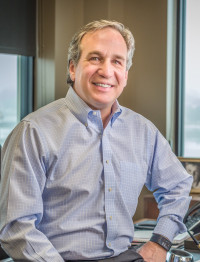 Gratitude
Gratitude
As president and chief executive officer of Michigan Sugar Co., Mark Flegenheimer ’83 wanted to recognize employees for working during the pandemic. The company bought 2,600 $50 gift cards from more than 50 restaurants in the communities where it operates and distributed them to its 1,300 employees.
“Our motivation was twofold,” Flegenheimer said in an email. “First, as a food manufacturer we had a unique responsibility to keep the supply of a basic, but vital ingredient – sugar – flowing to grocery stores and food manufacturers as consumers were heavily stocking up on groceries. The gift cards were a small thank-you to our employees for their unwavering focus and determination to ensure an uninterrupted supply to customers during the pandemic. We could not have done it without their tremendous response.
“Second, our factories are in very small, rural communities where many businesses, including restaurants, are suffering. We thought the gift cards from local restaurants might help these businesses during this difficult time.”
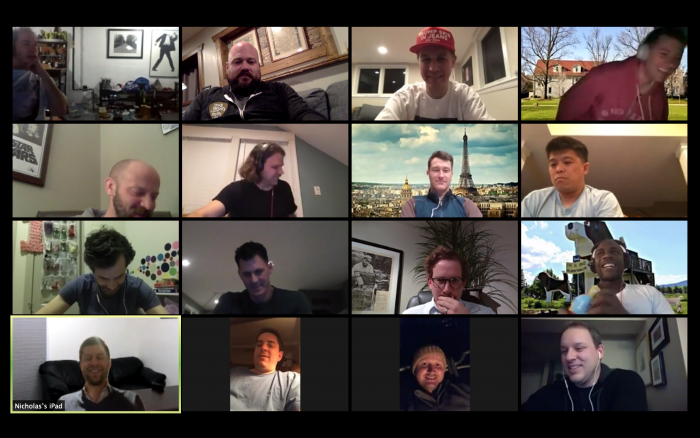
Brotherhood
Phi Kappa Psi brothers gathered for a weekly happy hour via Zoom. Pictured here:
Row 1: Andy LaDow ’01, John Rooks Jr. ’01, Dave Simon ’01, Xavier Pokorzynski ’00.
Row 2: Josh Bolin ’01, James Monaghan ’01, Benjamin “B.J.” Griswold ’01, Felix Yau ’01.
Row 3: Fred Crampton ’01, Jonathan Williams ’00, Andy Bagley ’04, Derron Harris ’01.
Row 4: Nick Bowles ’01, Matt Pritchard ’01, Dan Klemencic ’01, Phil Smith ’01.
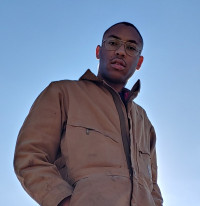 Design for the end of the world
Design for the end of the world
By Ian S. Brundige ’22
Eyes adjusted to the dark. Shattered my screen on concrete.
Breathing myself to sleep becomes my new beat—
My body will ache, without constant clatter:
Grindr taps. Viral videos. Digital deluge.
I am overwhelmed by the pressure and heat.
They told me to reduce, my use, to sustain this life
cycle so I learned to start a compost:
Egg shells. Coffee grounds. Orange peels.
When I arrive at the end of the world.
I will grow myself a better tomorrow. Food
won’t waste, preserved to the point of future fuel.
Fossils: Gatorade, Lipton, Mountain Dew. A new natural –
landscapes of plastics planned to last longer than my impact
or the home-cellar stocked with enough Kraft
Macaroni and Frosted Mini-Wheats for our final supper.
Take the stairs, turn off the lights, stop the tap.
Global warming isn’t as obvious as local change,
so ignore the warnings. But now, a revival of survival
skills: folding t-shirts, frozen dinners, friendly Facetimes.
I learned to fear the sky, the air, the gravity of humanity
as we pulled the planet to pieces, pleasure usurping purpose.
I think my world has ended before.
Like when, I cracked my sister’s window.
A marble maybe, caused a hairline fracture. She,
the always good one, candidly confessed my original sin.
I, the always stubborn, lied through the night, refusing to admit
my mistakes to my mother, until the fissure became a fault in the
foundation of our family, a future of full-out fights with my father.
These are days when I felt like it froze over,
or just spiraled into entropy, Earth knocked out of our
rightful place in space. So I hide under blankets of smoke,
smoke out the sounds of waging wars knocking at my door.
It only helps a little. Nature's symphony, so loud, it bleeds
into my being, molten moments erupt into my dreams and days.
I tried to prepare for the end of the world,
2,569 pictures of clouds fill my cloud. The digital diary
I’m compelled to complete, knowing that the sleek un-Apple
apparatus I cling to will be obsolete. I want to remember the feel
of my phone: Google Chrome, Chase Bank. Camera Connect.
Its functions drive my life, while my details fill its drive.
The cold burns, but I continue to hold in an ungloved hand
my personal portal to the sun, and all the stars. I used to wait
to watch daybreak, through endless isolated ignorance. Now,
I worry I will combust: burning out in fires, my body blistered
and withered without instinct of nature or education of nurture.
And then the world ended anyway.
Endgame type shit. Grounded flights, isolated lights, this, our plight.
Humans connected through iron unlike before. I am suffocating
in the convenience of empty store bags reading:
Thank you. Thank you. Thank you. Have a nice (sick) day.
My screen’s still cracked, the window’s fixed though.
A pristine view of it snowing all Sunday. The clock I used to play
around, frozen and faded. I had to stay, indoors, so I cried dusk away,
went to bed in March’s winter and woke up in the spring of May.
The end of the world is today.
DePauw Magazine
Summer 2020
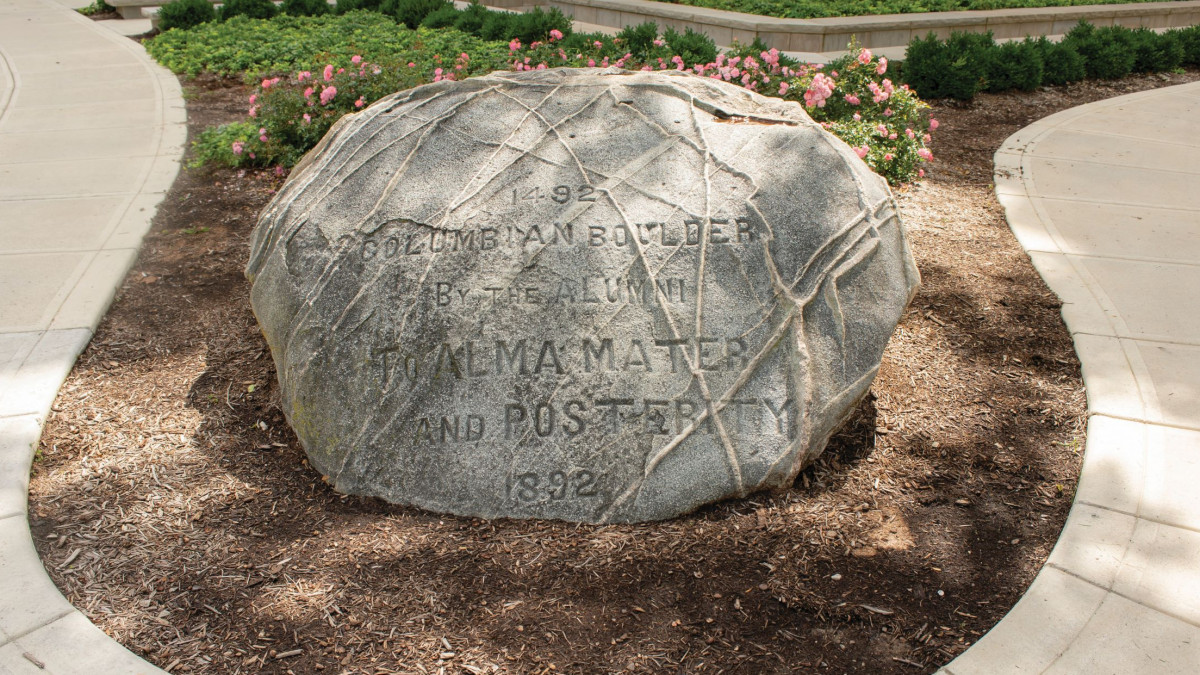 The Bo(u)lder Question
The Bo(u)lder Question 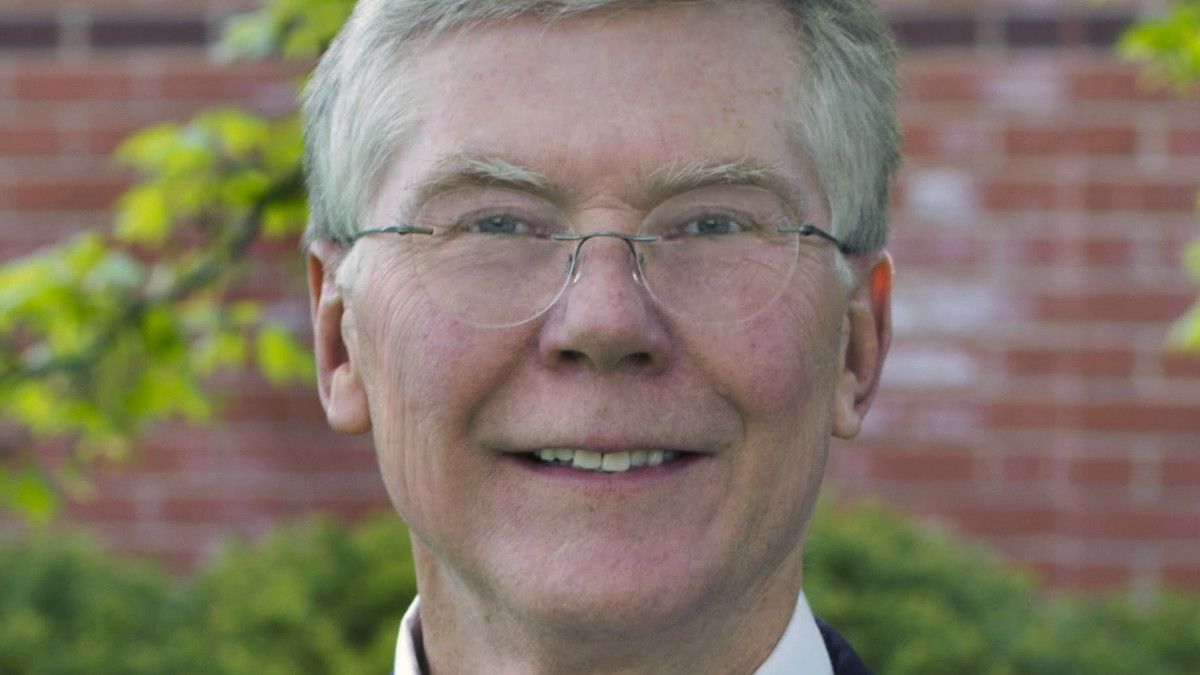 Retired archivist reflects on 36 years as DePauw’s memory keeper
Retired archivist reflects on 36 years as DePauw’s memory keeper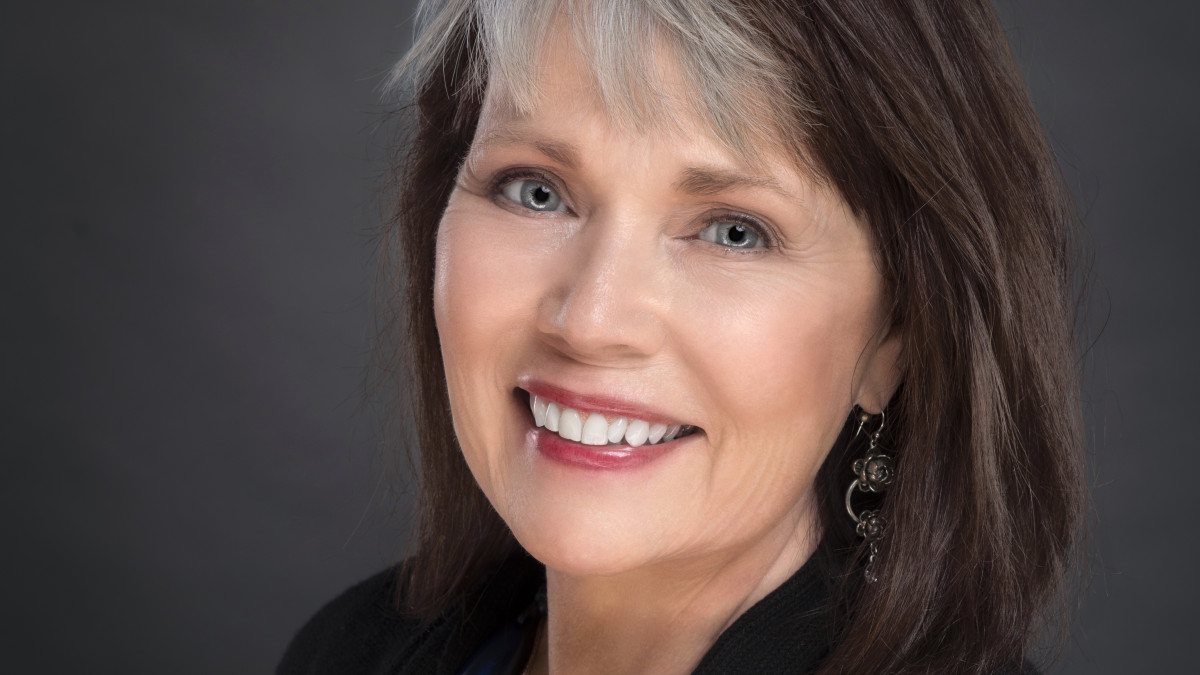 First Person by Connie Campbell Berry '67
First Person by Connie Campbell Berry '67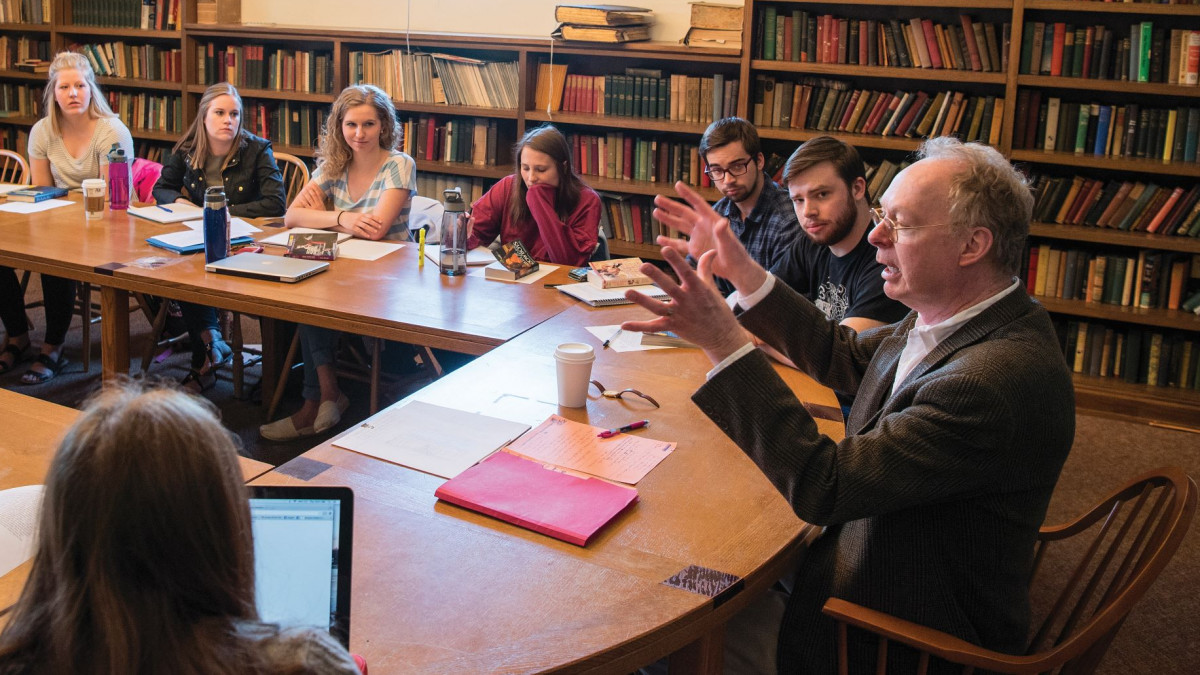 First Person by Wayne Glausser
First Person by Wayne Glausser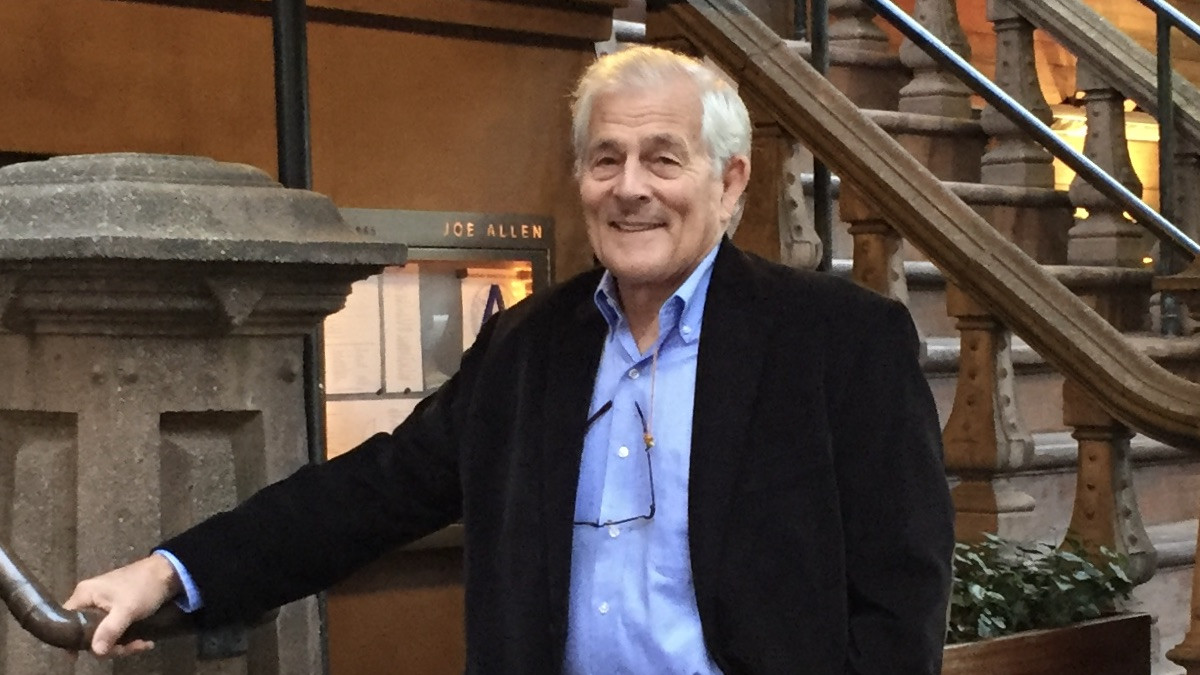 Battling an epidemic, treating individuals: Physician alum has done it all
Battling an epidemic, treating individuals: Physician alum has done it all 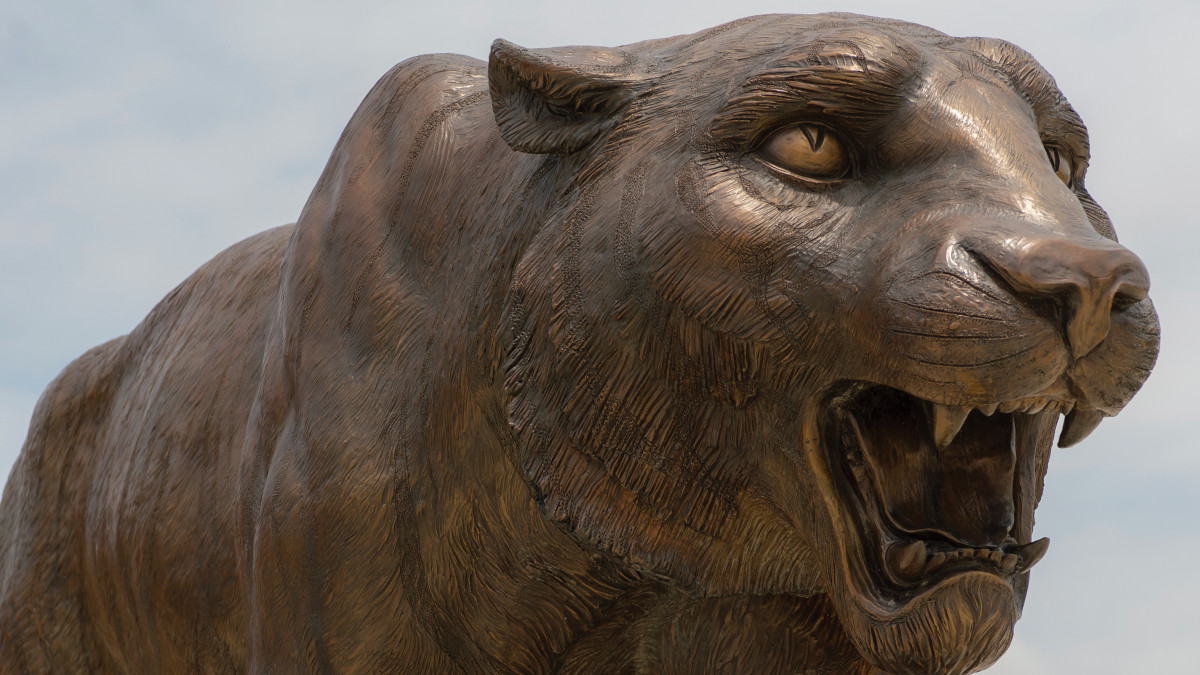 Welcome, Class of 2024!
Welcome, Class of 2024!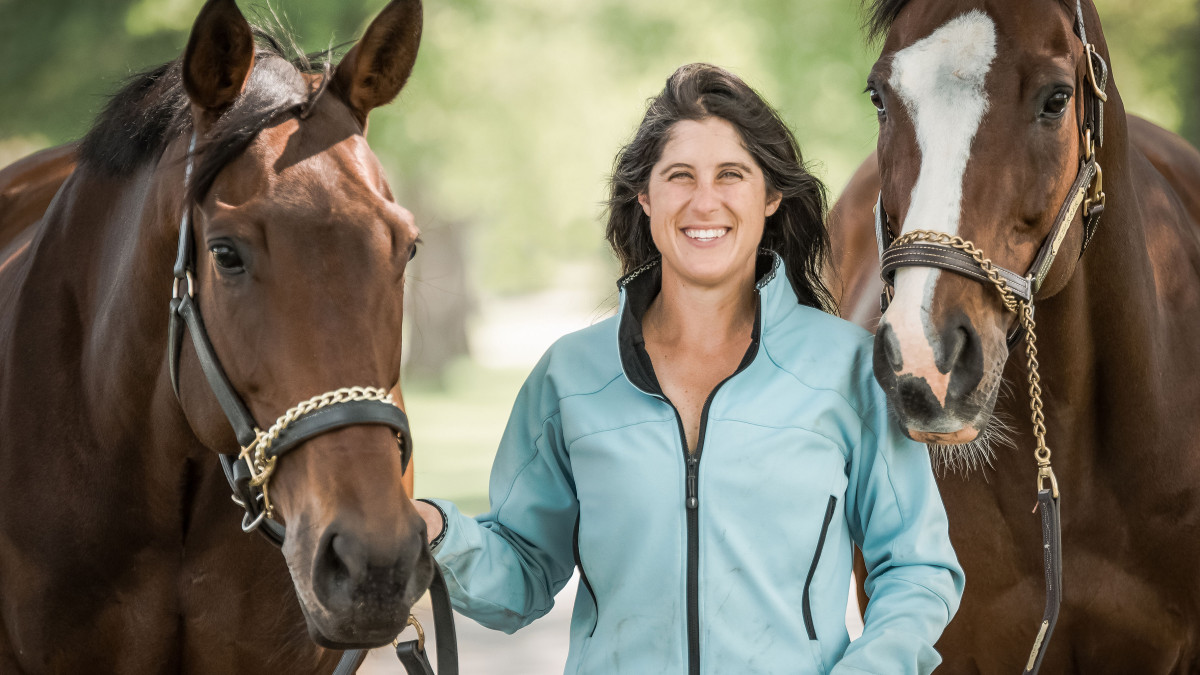 She has loved them since she was 6: vet cares for, competes with and rescues horses
She has loved them since she was 6: vet cares for, competes with and rescues horses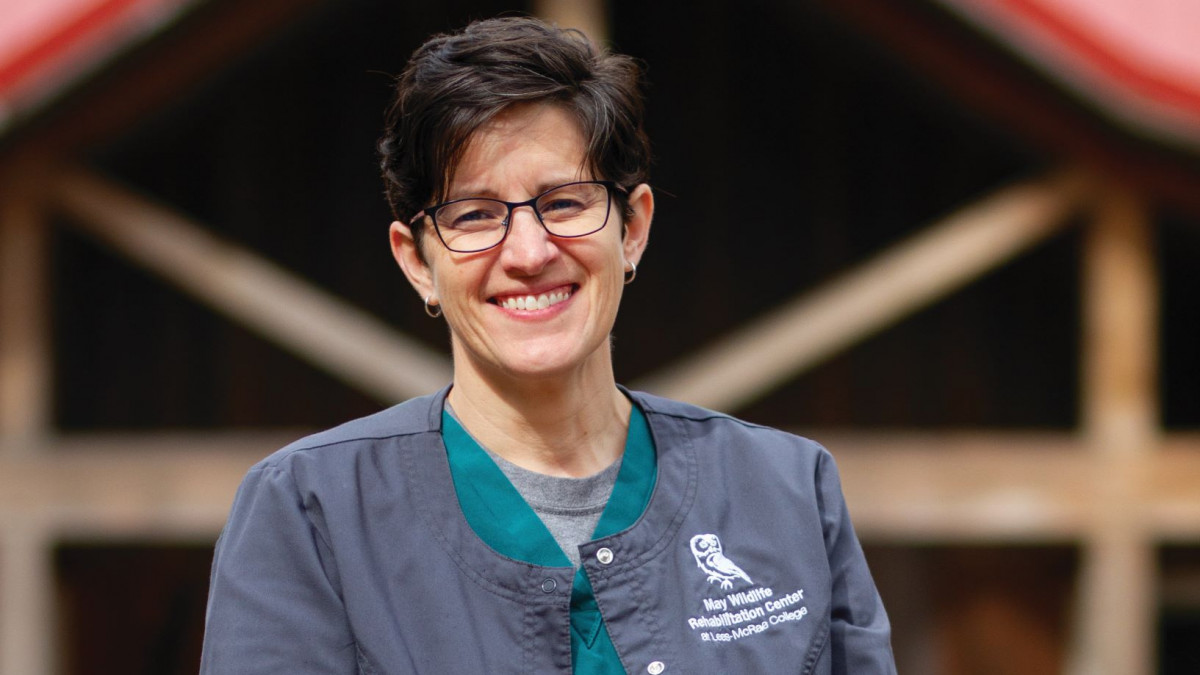 Liberal arts taught wildlife vet to consider different approaches to patients’ problems
Liberal arts taught wildlife vet to consider different approaches to patients’ problems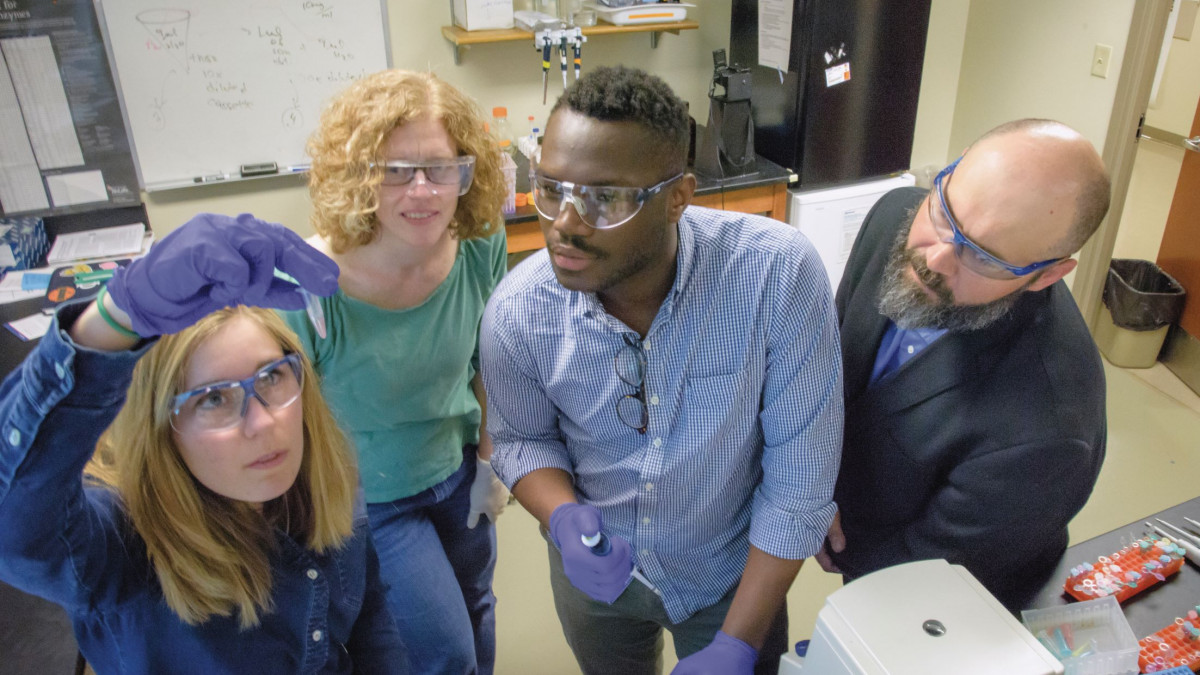 Scientist and humanitarian: Prof embodies disparate interests, then acts on and teaches them
Scientist and humanitarian: Prof embodies disparate interests, then acts on and teaches them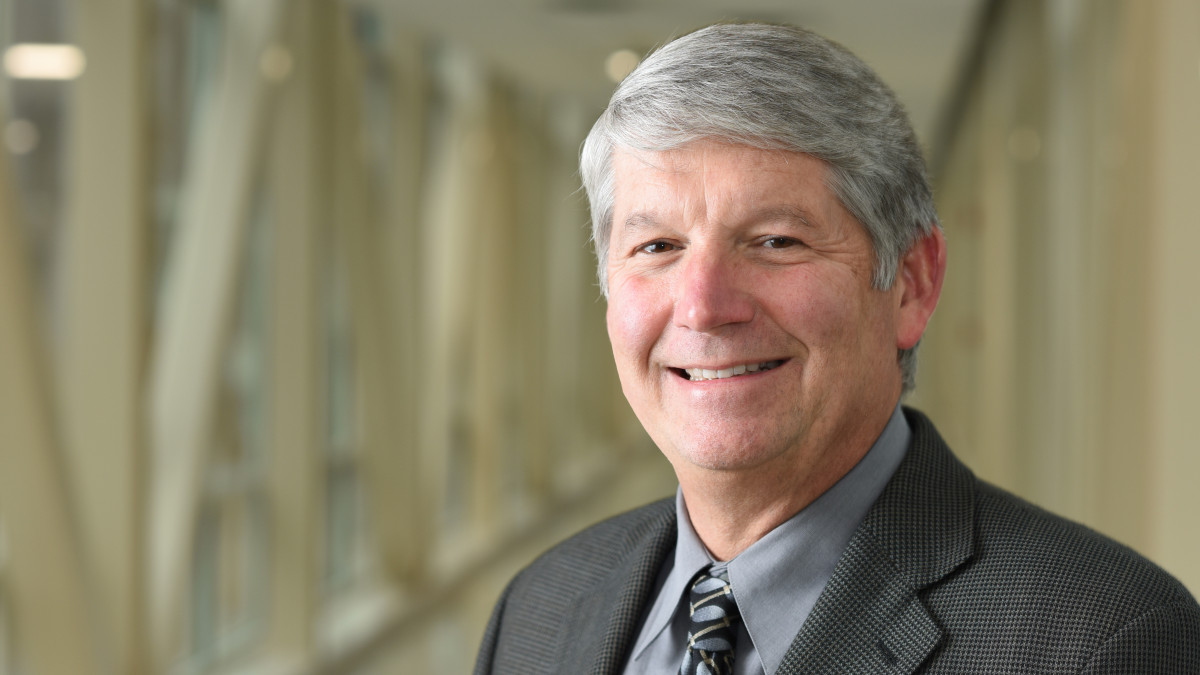 Researcher follows the science toward treatments
Researcher follows the science toward treatments The ‘dura mater’ handles medical training and motherhood with aplomb
The ‘dura mater’ handles medical training and motherhood with aplomb 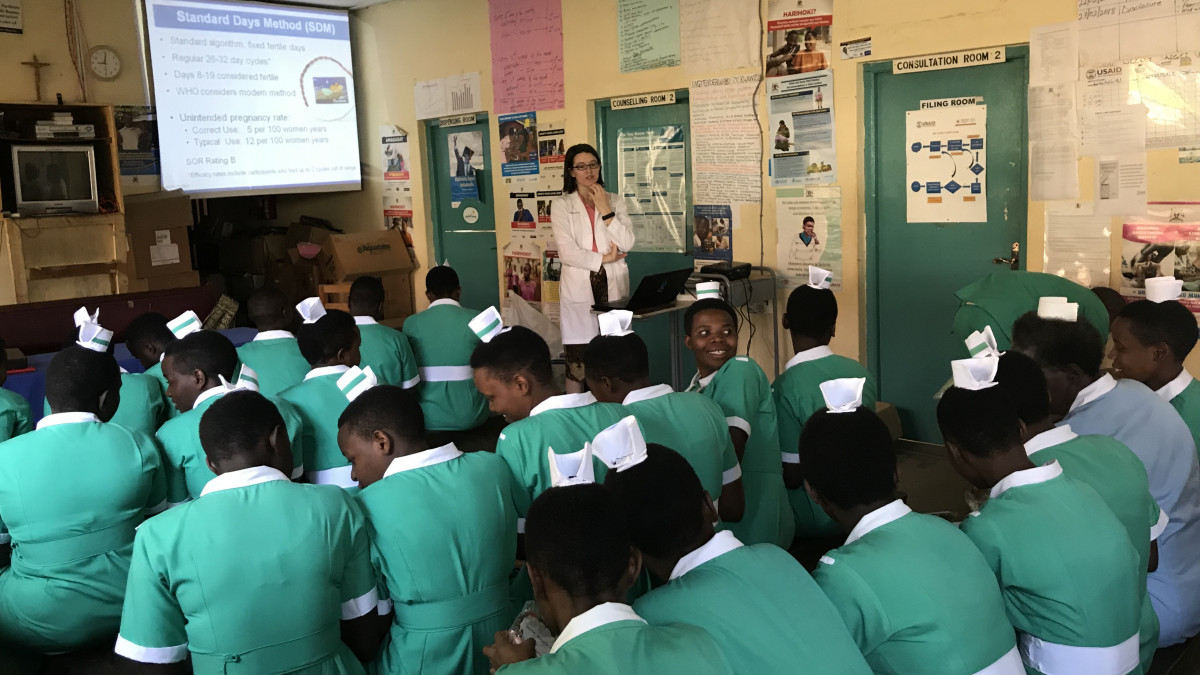 Evolving interests drive ’12 grad to trade test tubes for a stethoscope
Evolving interests drive ’12 grad to trade test tubes for a stethoscope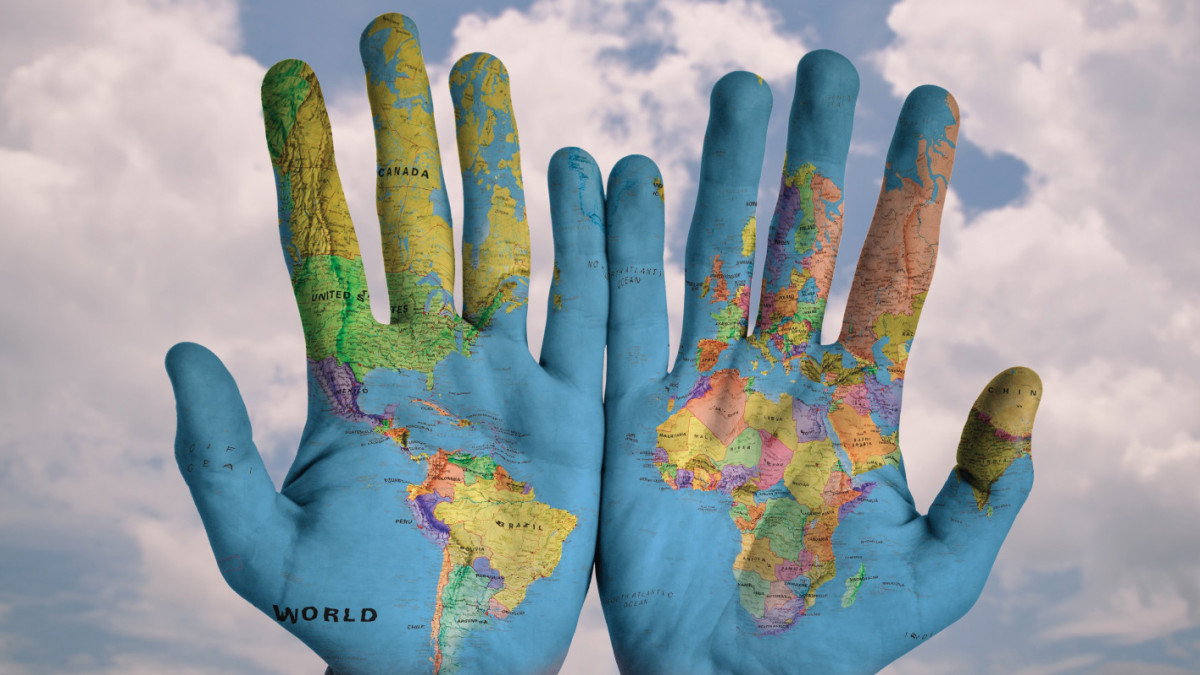 Alum hopes to meet global needs by establishing med school
Alum hopes to meet global needs by establishing med school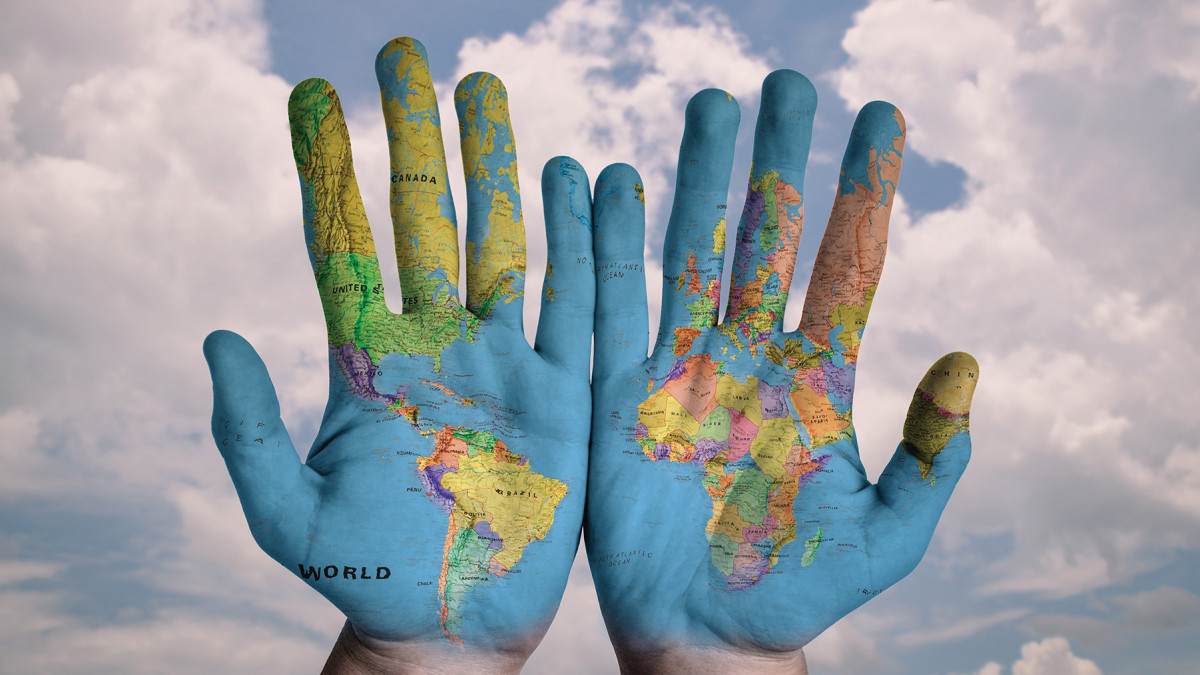 The healers
The healers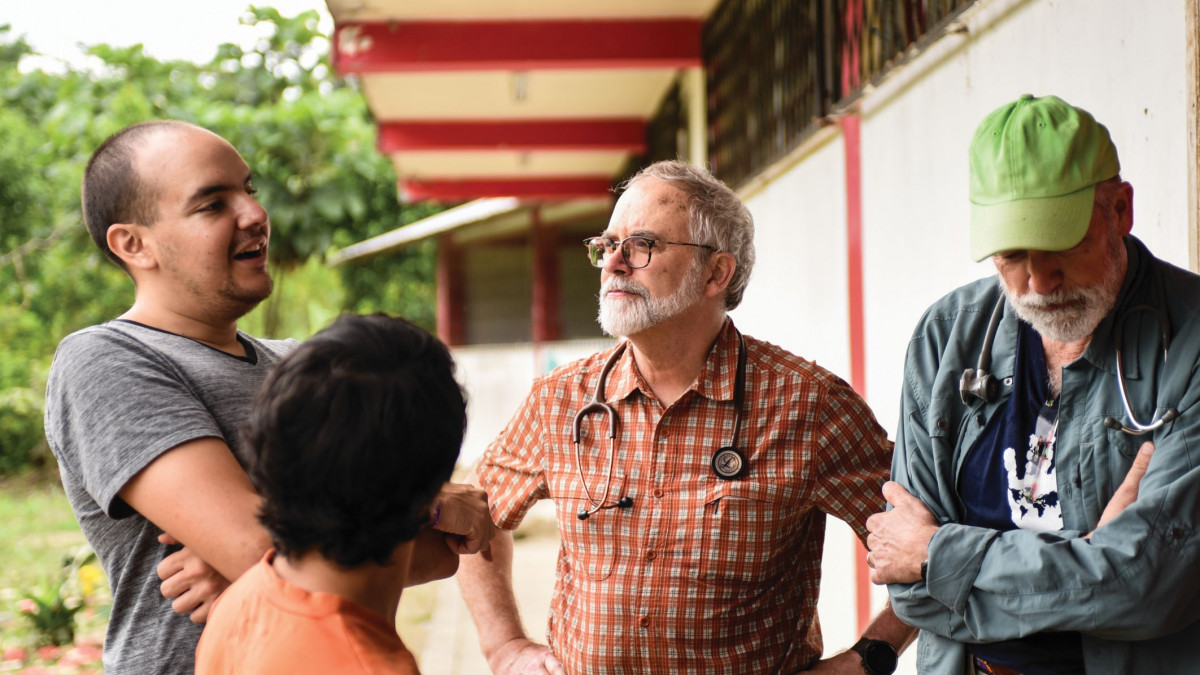 Personal experiences prepared ’76 alum for work, service
Personal experiences prepared ’76 alum for work, service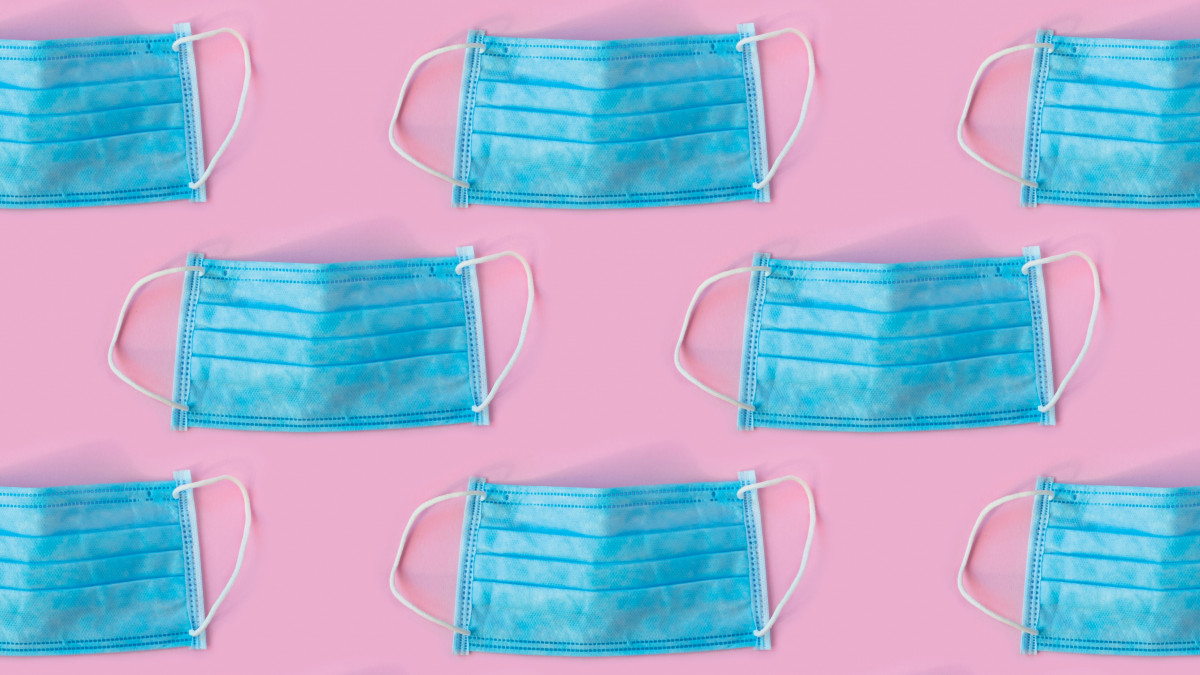 DePauw in the time of COVID-19
DePauw in the time of COVID-19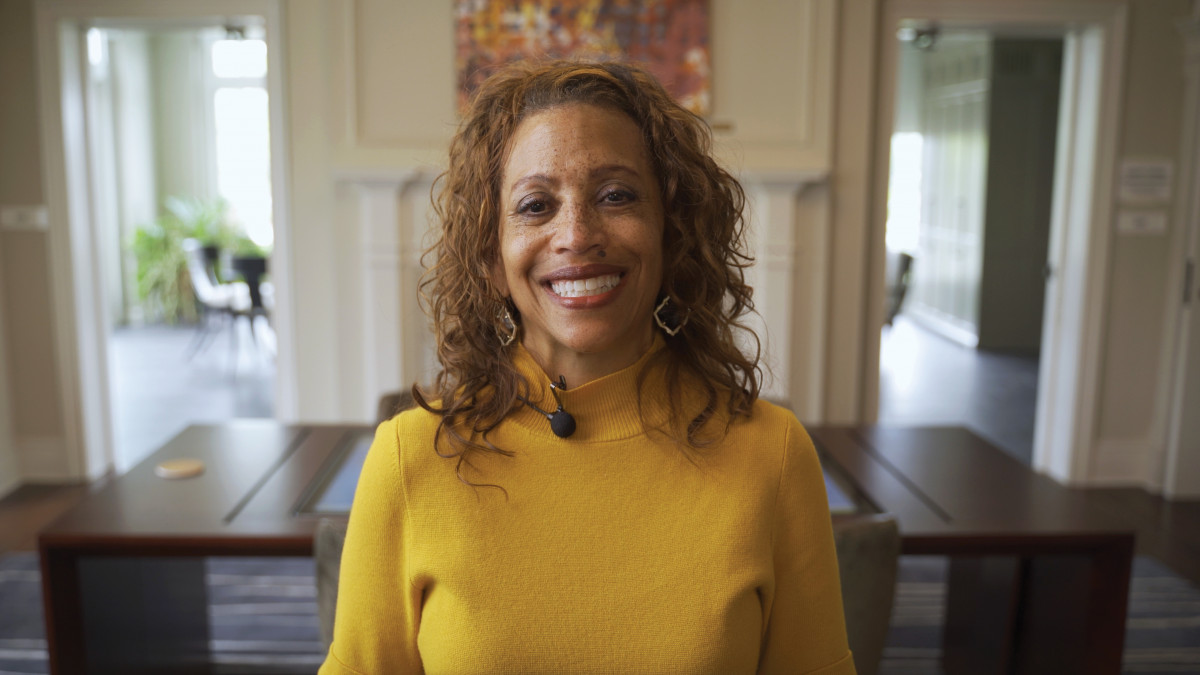 DePauw’s new president: A ‘visionary,’ empathetic and focused optimist ... who sings
DePauw’s new president: A ‘visionary,’ empathetic and focused optimist ... who sings
DePauw Stories
A GATHERING PLACE FOR STORYTELLING ABOUT DEPAUW UNIVERSITY
Browse other stories
-
Athletics
-
Football - Robby Ballentine Repeats as D3football.com Second Team All-America
-
Women's Basketball - Tigers Top Ephs for Third Straight Win
-
Men's Basketball - DePauw Extends Win Streak to Five; Jacobs Reaches 1,000-Point Plateau
More Athletics
-
-
News
-
Student and Professor Share Unexpected Writing Journey
-
Four in a Row! DePauw Wins 131st Monon Bell Classic
-
Jim Rechtin '93 Featured in Fortune Magazine
More News
-
-
People & Profiles
-
Entrepreneurs Eric Fruth ’02 and Matt DeLeon ’02 Are Running More Than a Business
-
Rick Provine Leaves Legacy of Leadership and Creativity
-
History Graduate Cecilia Slane Featured in AHA's Perspectives on History
More People & Profiles
-
-
Have a story idea?
Whether we are writing about the intellectual challenge of our classrooms, a campus life that builds leadership, incredible faculty achievements or the seemingly endless stories of alumni success, we think DePauw has some fun stories to tell.
-
Communications & Marketing
101 E. Seminary St.
Greencastle, IN, 46135-0037
communicate@depauw.eduNews and Media
-
News media: For help with a story, contact:
Bob Weaver, Senior Director of Communications.
bobweaver@depauw.edu.